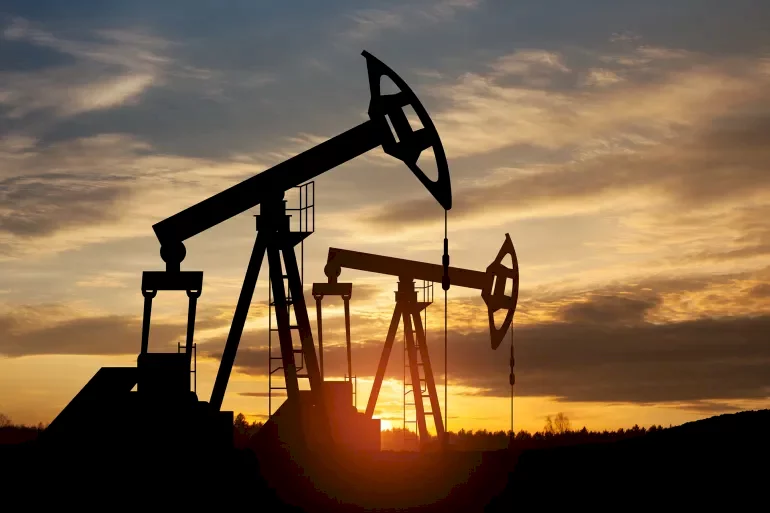
Stability of Oil Prices After a Three-Day Decline
SadaNews - Oil prices stabilized after a three-day decline, as investors evaluated the risks surrounding Russian supplies, while U.S. President Donald Trump escalated his threat to impose sanctions on India for purchasing oil from Moscow.
Brent crude traded below $69 per barrel after losing more than 6% during the previous three sessions, while West Texas Intermediate crude remained around $66.
Trump stated that he would implement a "significant increase" in tariffs on Indian exports to the U.S. due to New Delhi's Russian oil purchases, as part of an effort to pressure Moscow into reaching a ceasefire in Ukraine. New Delhi described the move as unjustified.
The price decline reflects concerns about a weakening U.S. economy
Oil has shown a downward trend in recent sessions after three months of gains. This weakness is attributed to signals of an economic slowdown in the world's largest economy amidst the broader trade actions undertaken by Trump, which threaten energy demand, in addition to the OPEC+ coalition moving to ease supply restrictions. Together, these factors have raised fears of an oil surplus in the second half of the year, putting pressure on prices.
Trump's latest warning to India came ahead of the deadline he set for August 8 for Russia to reach a ceasefire with Ukraine. U.S. Special Envoy Steve Witkoff is expected to visit Moscow on Wednesday, according to the TASS news agency.
India and China Lead Russian Oil Imports
India has emerged as the largest buyer of seaborne Russian oil since the war in Ukraine began in early 2022, benefiting from price discounts after Western nations avoided purchasing Russian crude, with its imports rising from near-zero levels to about one-third of total imports. China is also among the major buyers of Moscow's oil.
Any disruption in India's purchases of Russian oil could lead it to seek alternative supplies. In a recent note, "Rystad Energy" stated that other OPEC+ countries, particularly in the Middle East, have the capacity to compensate for any potential shortfall. The coalition agreed over the weekend to increase production starting in September by about 547,000 barrels per day.

Generation "Z" Leads Economic Transformation in the Arab World

Trump's Threats to Iran Bring Oil Close to Four-Month High

Gold ounce exceeds $5200.. Silver records near $114 an ounce

Gold Surpasses $5200 Level for the First Time with Dollar Decline

Deutsche Bank Anticipates Gold Prices to Reach $6,000 by 2026

Saudi National Bank's Profits Grow 18% in 2025 Surpassing Expectations Thanks to Operation...

Iranian Currency Plummets to Record Low Against the Dollar
